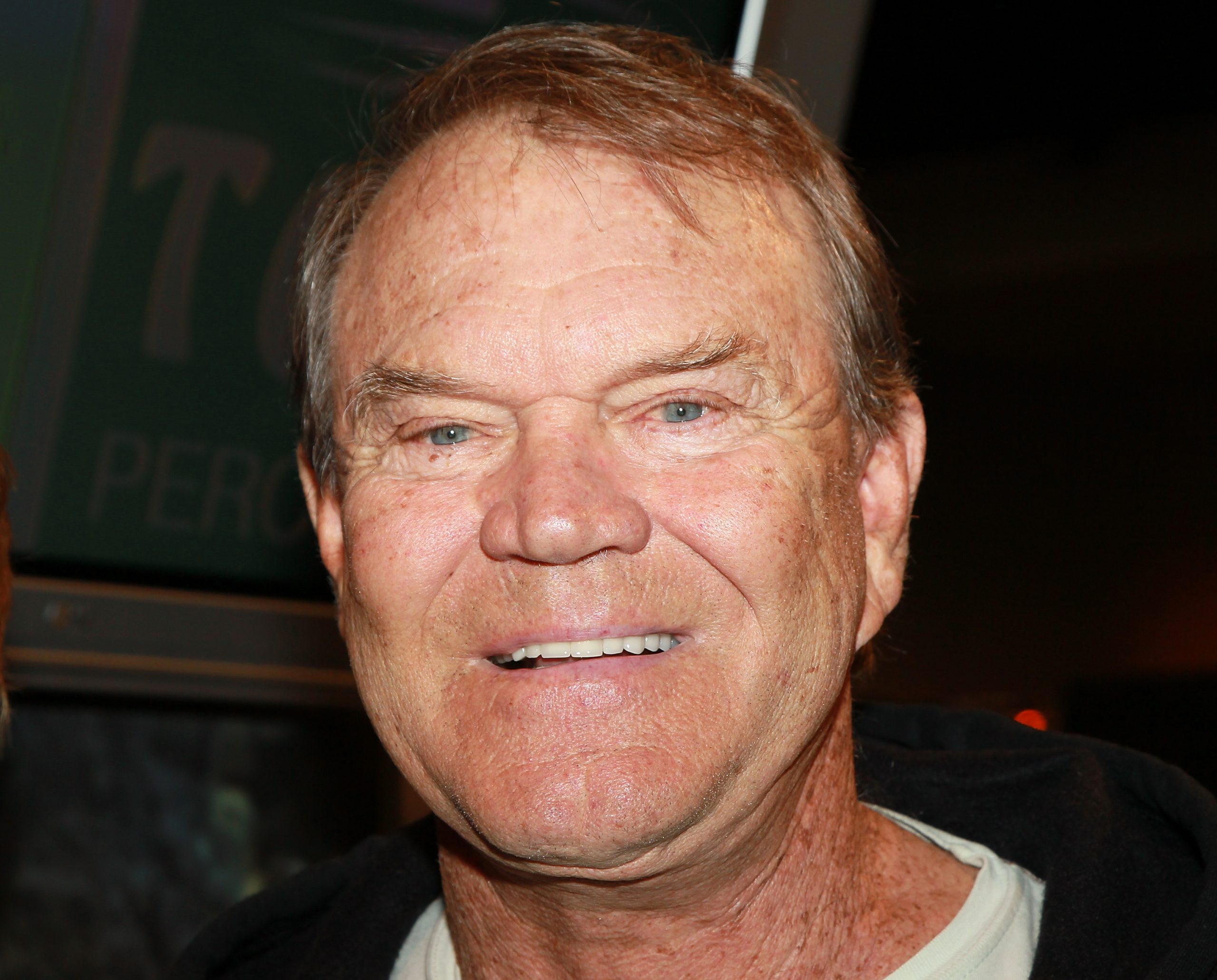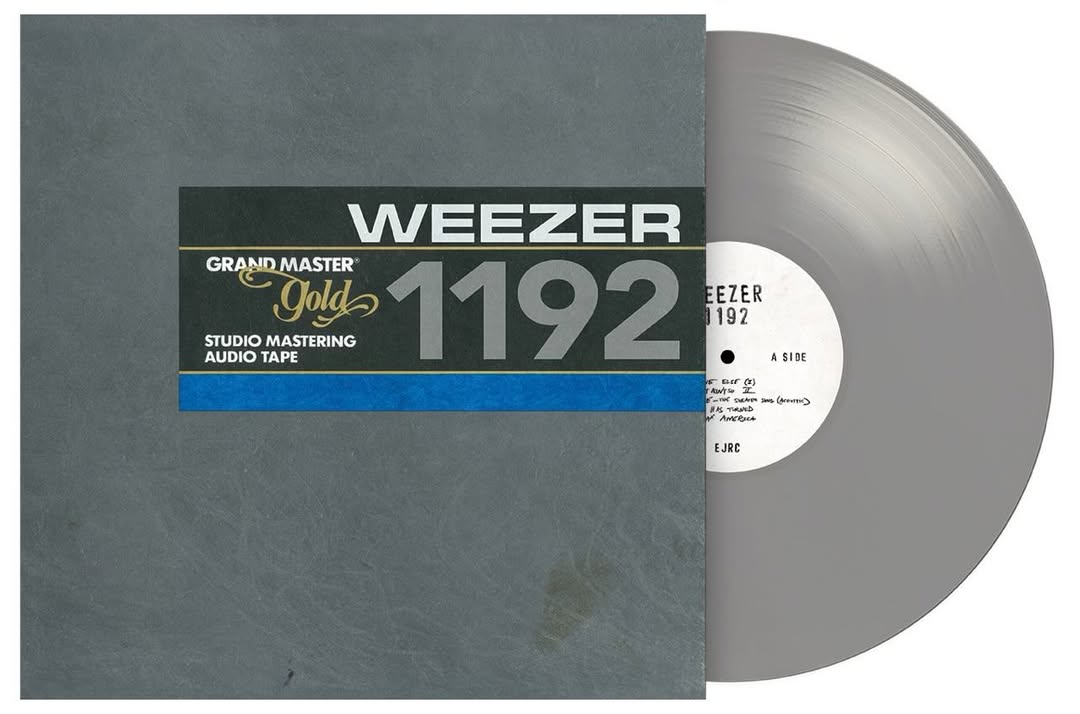Glen Campbell, the boyish singer-guitarist whose perfect blend of country and pop made for such hits as “Gentle on My Mind,” “Rhinestone Cowboy,” “Wichita Lineman” and “By the Time I Get to Phoenix,” died Tuesday (Aug. 8) after struggling with Alzheimer's disease for years, a rep confirmed to Rolling Stone. He was 81.
Campbell announced he was ill in June 2011 and was moved to a private care facility for Alzheimer’s and dementia patients near Nashville in April 2014.
In addition to “Wichita Lineman” and “By the Time I Get to Phoenix,” Campbell scored with another Jimmy Webb penned hit, “Galveston. ” His renditions of Larry Weiss’ “Rhinestone Cowboy” and Allen Toussaint’s “Southern Nights” each made it to No. 1 on the Billboard pop charts.
In paving a path for other successful country crossover artists, Campbell released more than 70 albums -- selling 45 million and accumulating 12 gold, four platinum and one double-platinum album -- during his half-century in show business. He collected five Grammy Awards, including Album of the Year in 1968 for By the Time I Get to Phoenix, and was the recipient of the organization’s Lifetime Achievement honor in 2012.
“He had that beautiful tenor with a crystal-clear guitar sound, playing lines that were so inventive,” Tom Petty once told Rolling Stone magazine. “It moved me.”
From 1969-72, the Delight, Ark., native hosted the CBS variety show The Glen Campbell Goodtime Hour, and he starred as young Texas Ranger La Boeuf in True Grit (1969) after being handpicked by John Wayne to star opposite him in the Hollywood icon’s lone Oscar-winning role. He also sang the Oscar-nominated title track, composed by Elmer Bernstein and Don Black.
Born on April 22, 1936, to poverty-stricken parents Wesley and Carrie Dell, who picked cotton on a farm, Glen Travis Campbell was the seventh son, one of 12 siblings.
He moved to Los Angeles in the late 1950s, where he began to write songs and record demos, and he became a sought-after session guitarist, playing for Elvis Presley, Merle Haggard, The Beach Boys (he played guitar on the Pet Sounds album and toured with the band for several months following the breakdown of Brian Wilson), Nat King Cole, Frank Sinatra and The Monkees, to name a few. He became part of Phil Spector’s The Wrecking Crew, the famed session band that played on many of the world’s biggest hits at L.A.’s Gold Star Studios, creating the producer’s legendary “Wall of Sound.”
In 1961, Campbell released the single “Turn Around, Look at Me” on tiny Crest Records, grabbing the attention of music executives. A year later, he was signed to Capitol Records, where his career was met with only minor success until he partnered with producer Al De Lory and songwriters Webb and Hartford.
Campbell teamed with De Lory on his fifth studio album Burning Bridges, a commercial breakthrough that was released by Capitol in 1967. His distinctive fingerpicking style and indelible guitar riffs were the perfect foundation that allowed his warm, personable vocals to shine, with the title track becoming a Top 20 country hit. The two collaborated on John Hartford’s “Gentle on My Mind” that year, a Top 40 hit on the pop and country charts.
Campbell’s biggest accomplishments came when he partnered with Webb in the late ’60s -- interpreting and singing his songs with a striking intimacy that made them his own. “On certain songs, the magic is undeniable: ‘Wichita Lineman’ and ‘By the Time I Get to Phoenix’…. it’s almost as though the song was waiting for the singer and the singer was waiting for the song,” Webb once said.
On The Glen Campbell Goodtime Hour -- which began as a summer replacement for The Smothers Brothers Show and featured Steve Martin and Rob Reiner as writers and “Gentle on My Mind” as its theme song -- the clean-cut Campbell engaged in comedy skits when he wasn’t performing and featured many of his friends as musical guests, including The Monkees, Neil Diamond, Linda Ronstadt, Johnny Cash, Merle Haggard, Willie Nelson and Waylon Jennings.
He also starred as the title character in the 1970 film comedy Norwood, playing opposite NFL quarterback Joe Namath as Vietnam veterans returning home to Texas. And in 1982, he fronted the syndicated Glen Campbell Music Show for NBC.
Campbell also played host to the Los Angeles Open, the PGA Tour’s stop at Riviera Country Club, from 1971-83, and in 1994 he opened the 2,200-seat Glen Campbell Goodtime Theatre in Branson, Mo.
Campbell was married four times, the last to Kim Woollen, a Radio City Rockette whom he wed in 1982 when he was 46 and she was 24. She survives him. His earlier marriages included one to singer Mac Davis’ second wife, Sarah Barg. (He also dated fellow country star Tanya Tucker before meeting Kim.)
Campbell had five sons and three daughters. His youngest children Cal, Shannon and Ashley joined him as his backup band on his last series of concerts, dubbed The Goodbye Tour, which launched in Los Angeles in late 2011.
“He'll struggle with a guitar solo one day and the next he’ll just nail it completely,” Ashley told the Tampa Bay Times about her father’s deteriorating condition. She played banjo and keyboards, with Cal on drums and Shannon on guitar alongside their dad.
Campbell’s family and friends created an undeniable bond while sharing his musical legacy one last time. Director and friendJames Keach captured these precious moments along with his personal struggle with the disease in the documentary, Glen Campbell … I’ll Be Me, which premiered at the 2014 Nashville Film Festival.
Complications and struggles with Alzheimer’s didn’t stop him from jumping up on a stage, guitar in hand, and serenading fans during his final shows. Campbell fumbled lyrics, searched for guitar riffs and showed moments of confusion telling his stories, but with his children and wife by his side, they gently reminded him along the way.
Campbell released the albums Ghost on the Canvas in 2012, which USA Today called “a museum-quality masterpiece,” and See You There, an album for Surfdog Records that was produced by Dave Kaplan and Dave Darling, in 2013. For the latter, he performed such hits as "Rhinestone Cowboy" with a stripped-down feel.
“The overall theme and concept that I had was ‘back to the living room,’ ” Kaplan told Rolling Stone. “This was just so much about his voice and about [putting] more of that spotlight back on the simple, singular greatness of his singing.”
Keach called Campbell “the original crossover musical genius, a man who is told to end his career and he does the opposite, inspiring the rest of us to live our lives in the moment and to be ourselves no matter what -- with no shame. He’s been down a rocky road and he still has a smile on his face and a song in his heart. That’s Glen.”
https://www.youtube.com/?v=8kAU3B9Pi_U
https://youtube.com/watch?v=mhGogr2qbwA
This article originally appeared on Billboard.






